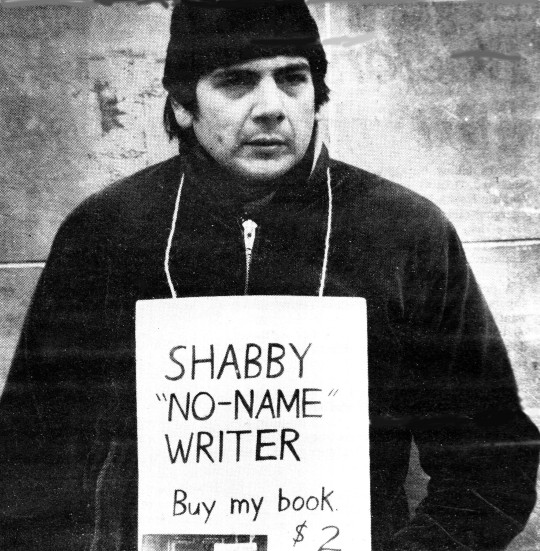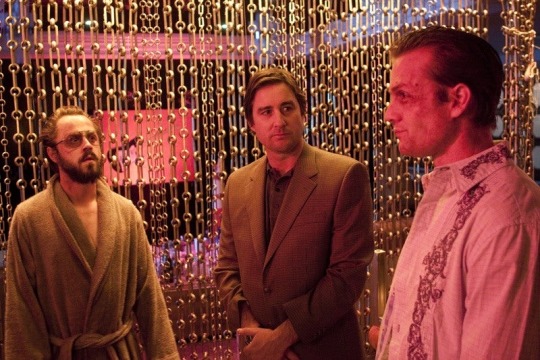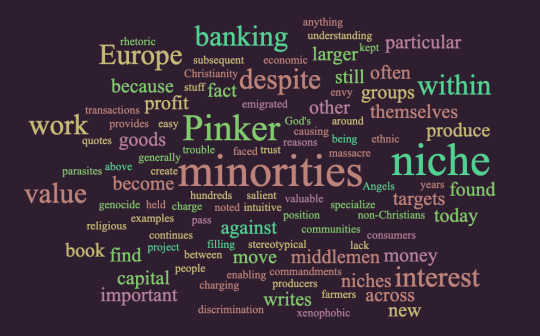#middlemen
Text
Middlemen without enshittification

I'm on tour with my new novel The Bezzle! Catch me next in SALT LAKE CITY (Feb 21, Weller Book Works) and SAN DIEGO (Feb 22, Mysterious Galaxy). After that, it's LA, Seattle, Portland, Phoenix and more!

Enshittification describes how platforms go bad, which is also how the internet goes bad, because the internet is made of platforms, which is weird, because platforms are intermediaries and we were promised that the internet would disintermediate the world:
https://pluralistic.net/2024/01/30/go-nuts-meine-kerle/#ich-bin-ein-bratapfel
The internet did disintermediate a hell of a lot of intermediaries – that is, "middlemen" – but then it created a bunch more of these middlemen, who coalesced into a handful of gatekeepers, or as the EU calls them "VLOPs" (Very Large Online Platforms, the most EU acronym ever).
Which raises two questions: first, why did so many of us end up flocking to these intermediaries' sites, and how did those sites end up with so much power?
To answer the first question, I want you to consider one of my favorite authors: Crad Kilodney (RIP):
https://archive.org/details/thecradkilodneypapers
When I was growing up, Crad was a fixture on the streets of Toronto. All through the day and late into the evening, winter or summer, Crad would stand on the street with a sign around his neck ("Very famous Canadian author, buy my books, $2" or sometimes just "Margaret Atwood, buy my books, $2"). He wrote these deeply weird, often very funny short stories, which he edited, typeset, printed, bound and sold himself, one at a time, to people who approached him on the street.
I had a lot of conversations with Crad – as an aspiring writer, I was endlessly fascinated by him and his books. He was funny, acerbic – and sneaky. Crad wore a wire: he kept a hidden tape recorder rolling in his coat and he secretly recorded conversations with people like me, and then released a series of home-duplicated tapes of the weirdest and funniest ones:
https://archive.org/details/on-the-street-crad-kilodney-vol-1
I love Crad. He deserves more recognition. There's an on-again/off-again documentary about his life and work that I hope gets made some day:
https://pluralistic.net/2020/09/09/free-sample/#putrid-scum
But – and this is the crucial part – there are writers out there I want to hear from who couldn't do what Crad did. Maybe they can write books, but not edit them. Or edit them, but not typeset them. Or typeset, but not print. Or print, but not spend the rest of their lives standing on a street-corner with a "PUTRID SCUM" sign around their neck.
Which is fine. That's why we have intermediaries. I like booksellers (I was one!). I like publishers. I like distributors. I like their salesforce, who go forth and convince the booksellers of the world to stock books like mine. I have ten million things I want to do before I die, and I'm already 52, and being a sales-rep for a publisher isn't on my bucket list. I am so thankful that someone else wants to do this for me.
That's why we have intermediaries, and why disintermediation always leads to some degree of re-intermediation. There's a lot of explicit and implicit knowledge and specialized skill required to connect buyers and sellers, creators and audiences, and other sides of two-sided markets. Some producers can do some of this stuff for themselves, and a very few – like Crad – can do it all, but most of us need some help, somewhere along the way. In the excellent 2022 book Direct, Kathryn Judge lays out a clear case for all the good that middlemen can do:
https://pluralistic.net/2022/06/12/direct-the-problem-of-middlemen/
So why were we all so anxious for disintermediation back in the late 1990s? Here's a hint: it wasn't because we hated intermediaries – it was because we hated powerful intermediaries.
The point of an intermediary is to serve as a conduit between producers and consumers, buyers and sellers, audiences and creators. When an intermediary gains power over the audience – say, by locking them inside a walled garden – and then uses that lock-in to screw producers and appropriate an ever larger share of the value going between them, that's when intermediaries become a problem.
The problem isn't that someone will handle ticketing for your gig. The problem is that Ticketmaster has locked down all the ticketing, and the venues, and the promotions, and it uses that power to gouge fans and rip off artists:
https://pluralistic.net/2022/11/20/anything-that-cant-go-on-forever-will-eventually-stop/
The problem isn't that there's a well-made website that lets you shop for goods sold by many small merchants and producers. It's that Amazon has cornered this market, takes $0.51 out of every dollar you spend there, and clones and destroys any small merchant who succeeds on the platform:
https://pluralistic.net/2023/04/25/greedflation/#commissar-bezos
The problem isn't that there's a website where you can stream most of the music ever recorded. It's that Spotify colludes with the Big Three labels to rip off artists and sneaks crap you don't want to hear into your stream in order to collect payola:
https://pluralistic.net/2022/09/12/streaming-doesnt-pay/#stunt-publishing
The problem isn't that there's a website where you can buy any audiobook you want. It's that Amazon's Audible locks every book to its platform forever and steals hundreds of millions of dollars from creators:
https://pluralistic.net/2022/07/25/can-you-hear-me-now/#acx-ripoff
The problem, in other words, isn't intermediation – it's power. The thing that distinguishes a useful intermediary from an enshittified bully is power. Intermediaries gain power when our governments stop enforcing competition law. This lets intermediaries buy each other up and corner markets. Once they've formed cozy cartels, they can capture their regulators and commit rampant labor, privacy and consumer violations with impunity. That capture also lets them harness governments to punish smaller players that want to free workers, creators, audiences and customers from walled gardens. It also hands them a whip-hand over their workers, so that any worker who refuses to aid in these nefarious plans can be easily fired:
https://pluralistic.net/2024/01/30/go-nuts-meine-kerle/#ich-bin-ein-bratapfel
A world with intermediaries is a better world. As much as I love Crad Kilodney's books, I wouldn't want to live in a world where the only books on my shelves came from people prepared to stand on a street-corner wearing a "FOUL PUS FROM DEAD DOGS" sign.
The problem isn't intermediaries – it's powerful intermediaries. That's why the world's surging antitrust movement is so exciting: by reinstating competition law, we can keep intermediaries small and comparatively weak, so that creators and audiences, drivers and riders, sellers and buyers, and other groups seeking to connect will not find themselves made subservient to middlemen.

If you'd like an essay-formatted version of this post to read or share, here's a link to it on pluralistic.net, my surveillance-free, ad-free, tracker-free blog:
https://pluralistic.net/2024/02/19/crad-kilodney-was-an-outlier/#intermediation
#pluralistic#intermediation#disintermediation#publishing#creative labor#middlemen#distributors#publishers#publicists#enshittification#monopoly#monopsony#crad kilodney#trustbusting#antitrust
171 notes
·
View notes
Text

#singlepayer sunday#pre-existing conditions#medical history#for-profit#health insurance#middlemen#universal healthcare#medicare for all
100 notes
·
View notes
Text
“A middleman’s business is to make himself a necessary evil.”
William Gibson, Neuromancer
https://bookshop.org/a/12010/9780441007462
#middleman#middlemen#necessary evil#william gibson#neuromancer#booklr#bookblr#bookish#bookworm#booklover#bibliophile#book#books#philosophy#books and libraries#book quote#book quotes#literary quote#literary quotes#great quote#great quotes#great line#great lines#fiction#classics#literature#novel
3 notes
·
View notes
Text






I am so curious if Harvey met this guy, how would that conversation go down? His fashion sense, I just can’t 🙈🙈🙈 The sheer amount of hair gel, is this where Harvey got his inspiration? This is from the movie Middle Men. His character, Buck, is just pure chaos. Gabriel appeared a decent number of times so that makes the movie worth a watch but let it be warned, you really can’t unsee this!
#gabriel macht#gabrielmacht#harvey specter#harveyspecter#suits#suits usa#suitsusa#middlemen#luke wilson
11 notes
·
View notes
Text
Top Forex Broker In The World 2022
A Foreign exchange broker, also known as an FX broker or a forex broker, buys and sells currencies on behalf of clients. While charging a commission for the service .Foreign exchange brokers are ‘middlemen’ who match the currency buy and sell orders from their clients to other clients orders.

#forex#broker#currency#forexbroker#currencies#trader#xtreamforex#foreignexchange#buys#sell#ECN#forextrading#middlemen#clients#order
3 notes
·
View notes
Link
The darkness beneath the glow
#cosmetics#mica#mining#resource extraction#India#child slavery#poverty#exploitation#crime#corruption#mafia#middlemen#vanity
1 note
·
View note
Text
Middleman Minorities & Discrimination
Middleman Minorities & Discrimination
Older interpretations of Christianity held that it was against the Christian God’s commandments for Christians to loan money and charge interest. Consequentially, across Europe Christians generally were not bankers, because it was a religious violation for Christians to be in positions where they were charging interest. Banking then became a niche role for non-Christians – Jews in particular…

View On WordPress
0 notes
Text
Hate it when people with Money refer to something like $1200 as "twelve hundred." Like, I am giving you a thousand dollars. A thousand! Put some respect on it!
#I know that's chump change in the wider adult world but ughhhh#I'm so tired of dealing with these bougie middlemen involved with the lease process#ughhhhhhh#personal
11 notes
·
View notes
Text
Brinkwhump Linkdump

I'm on tour with my new, nationally bestselling novel The Bezzle! Catch me in TUCSON (Mar 9-10), then San Francisco (Mar 13), Anaheim, and more!

Once again, I find myself arriving at the weekend with a giant backlog of links, triggering a linkump, the 15th such dumpage, a variety-pack of miscellany for your weekend. Here's the previous editions:
https://pluralistic.net/tag/linkdump/
Let's start with the latest incredible news from KPMG, the accounting and auditing giant that is relied upon as a source of ground truth for a truly terrifying share of the world's economy. KPMG has a well-deserved reputation for incompetence and corruption. They first came on my radar in 2001 when they sent a legal threat to a blogger for linking to their website without permission:
https://memex.craphound.com/2001/12/05/reason-4332442-not-to-ask/
The actual link was to KPMG's corporate anthem, which remains, to this day, a banger:
https://web.archive.org/web/20040428063826/http://chkpt.zdnet.com/chkpt/uknewsita/http://anthems.zdnet.co.uk/anthems/kpmg.mp3
Don't miss the DJ remixes (and the Nokia ringtone!) that the internet thoughtfully provided when KPMG decided that it didn't want the world to know about "Our Vision of Global Strategy":
https://web.archive.org/web/20011128153057/http://corporateanthems.raettig.org/
Now all this is objectively very funny, a relic of the old, good internet from one of its moments of glory, but KPMG? They were already enshittifying, even in 2001, and the enshittification only intensified thereafter. Nearly every accounting scandal of the past quarter-century has KPMG in it somewhere, from con-artists selling exhausted oil fields to rubes:
https://www.desmog.com/2021/06/03/miller-energy-kpmg-auditors-oil-fraud/
To killer nursing homes that hire KPMG to audit its books – and to advise it on how to defeat safety audits and murder your grandma:
https://pluralistic.net/2023/05/09/dingo-babysitter/#maybe-the-dingos-ate-your-nan
They're the architects of Microsoft's tax-evasion plot:
https://www.propublica.org/article/the-irs-decided-to-get-tough-against-microsoft-microsoft-got-tougher
And they were behind Canada's dysfunctional covid contact-tracing app, which never worked, but generated tens of millions in billings to the government of Canada, who used KPMG to hire programmers at $1,500/day, plus KPMG's 30% commission:
https://pluralistic.net/2023/01/31/mckinsey-and-canada/#comment-dit-beltway-bandits-en-canadien
KPMG's most bizarre scandal is literally stranger than fiction. The company bribed SEC personnel help its own accountants cheat on ethics exams. The corrupt officials were then given high-paid jobs at KPMG:
https://www.nysscpa.org/news/publications/the-trusted-professional/article/sec-probe-finds-kpmg-auditors-cheating-on-training-exams-061819
I mean it when I say this is stranger than fiction. I included it as a plot-point in my new finance crime novel The Bezzle (now a national bestseller!), and multiple readers have written to me since the book came out a couple weeks ago to say that they thought I was straining their credulity by making up such an outrageous scandal:
https://us.macmillan.com/books/9781250865878/thebezzle
But all of that is just scene-setting (and a gratuitous plug for my book) for the latest KPMG scandal, which is, possibly, the most KPMG scandal of all KPMG scandals. The Australian government hired KPMG to audit Paladin, a security contractor that oversees the asylum seekers the country locks up on one of its island gulags (yes, gulags, plural).
Ever since, Paladin has been the subject of a string of ghastly human rights scandals – the worst stuff imaginable, rape and torture and murder of adults and children. Paladin made AU423 million on this contract.
And here's the scandal: KPMG audited the wrong company. The Paladin that the Australia government paid KPMG to audit was based in Singapore. The Paladin that KPMG audited was a totally different company, based in Papua New Guinea, who already had a commercial relationship with KPMG. It was this colossal fuckup that led to the manifestly unfit Singaporean company getting nearly half a billion dollars in public funds:
https://www.theguardian.com/business/2024/feb/24/incredible-failure-kpmg-rejects-claims-it-assessed-the-wrong-company-before-423m-payment-to-paladin
KPMG denies this. KPMG denies everything, always. Like, they denied creating "power maps" of decision-makers in the Australian government to target with influence campaigns in order to win contracts like this one. Who knows, maybe, this one time, they're telling the truth? After all, the company whose employees gather to sing lyrics like these can't be all bad, right?
The time is now to lead the way,
We share the same the idea
That may win by the end of the day.
Our strength is here to stay.
Identity, one energy,
One strategy, with sympathy.
These are the words that will lead us into a new world.
https://everything2.com/title/KPMG+corporate+anthem
You may find it strange that I'm still carrying around the factoid that KPMG once threatened to crush a blogger for linking to its terrible corporate anthem, but that's just my "Memex Method," which helps me keep track of literally everything that seemed important to me through most of my adult life:
https://pluralistic.net/2021/05/09/the-memex-method/
One of my favorite quips from the very quotable Riley Quinn is that "leftists are cursed with object-permanence" – that is, we actually remember what just happened and use it to think about what's happening now. The Memex Method is object permanence for 20+ years worth of stuff. A lot of those deep archives never see use, but there's a surprising number of leading indicators buried in the stuff that happened in years gone by.
Take James Boyle's 2014, XKCD-style comic about the experience of driving a notional Apple car:
https://www.thepublicdomain.org/2014/11/07/apple-updates-a-comic/
Apple, it turns out, spent the next decade working on just such a car, and while that car has now been canceled, Boyle's comic correctly anticipates so much about the trajectory Apple's products took. It's uncannily accurate – real "don't invent the torment nexus"/"cyberpunk was a warning, not a suggestion" stuff:
https://knowyourmeme.com/memes/torment-nexus
But no matter how many times we insist that the torment nexus shouldn't be created, the boardrooms of end-stage capitalism continue to invent them. Take HP, the poster-child for enshittification, edging out even KPMG in the race to turn everything into a pile of shit. After years of tormenting people to punish them for wanting to print things, HP has announced a new service that so mustache-twirlingly evil that it lacks verisimilitude:
https://arstechnica.com/gadgets/2024/02/hp-wants-you-to-pay-up-to-36-month-to-rent-a-printer-that-it-monitors/
Here's the pitch: HP will sell you a printer that you don't own. In addition to paying a monthly fee for your ink – which you pay no matter whether you print or not – you will also pay a monthly fee just for having HP's printer on your premises. You are absolutely, positively forbidden from using third-party ink in this printer, and must use HP's own ink, which sells for about $10,000/gallon.
But while you aren't allowed to use this printer in ways that are bad for HP's shareholders, HP is absolutely free to use the printer in ways that are bad for you. When you click through the signup agreement, you grand HP permission to surveil every document you print – and your home wifi network more generally – and to sell that data to anyone and everyone.
What's more, HP reserves the right to discipline you with punitive credit-card charges if you disconnect this printer from the internet, on the basis that doing so makes it harder for them to spy on your printer.
I'm sorry, this is just more torment nexus shit, the kind of thing you'd expect to drop on Apr 1, not Feb 29, but I guess this is where we are. I can only conjecture as to whether HP's businesses strategists are directly taking direction from my novella "Unauthorized Bread," or whether they're learning about it second-hand from a KPMG consultant who converted it to Powerpoint form and charged $1,500/day for the work:
https://arstechnica.com/gaming/2020/01/unauthorized-bread-a-near-future-tale-of-refugees-and-sinister-iot-appliances/
All of this cartoonish villainry is the totally foreseeable consequence of a culture of impunity, in which companies like HP and KPMG can rob, cheat, steal (and sometimes even kill) without consequence. This impunity is so pervasive that the exceptions – where a rich criminal faces real consequences – become touchstones: Enron, Arthur Anderson, Theranos, and, of course, FTX.
FTX was arguably the largest-scale corporate crime in world history, stealing more than $10 billion dollars, mostly from rubes sucked in by hype and Superbowl ads. When news that FTX founder and owner Sam Bankman-Fried was convicted of fraud and was in for a lengthy prison sentence made a huge stir, because criminals like SBF usually walk away from the wreckage with their hands in their pockets, whistling a jaunty tune.
One of the very best commentators on cryptocurrency scams generally and FTX/SBF in particular is Molly White, whose Web3 is Going Just Great feed is utterly indispensable. White's newsletter, "Citation Needed," dives deep into the wrangle of SBF's sentencing:
https://www.citationneeded.news/issue-52/
Bankman-Fried's parents – prominent law professors at top law schools – helped brief the court this week on their son's punishment. According to them, SBF faces 100 years in prison, but should be sentenced to 5.5-6.5 years at the most. Why? Because he is a vegan, who is not greedy, and feels remorse, and cares for individuals (recall that SBF presented himself as the avatar of the batshit "effective altruism" philosophy while privately admitting that he used this as a smokescreen).
The most bizarre note in the 100-page filing is SBF's mother declaring that her son is an "angel of mercy," apparently unaware of the grisly meaning of that term:
https://en.wikipedia.org/wiki/Angel_of_mercy_(criminology)
America's prisons are a travesty and I wouldn't wish them on anyone, but that's not the argument SBF's parents are making; rather, they're arguing that their special boy doesn't deserve the treatment America metes out to poorer, less white people who merely steal hundreds or thousands of dollars. A crook who steals ten billion should be handled the way a casino handles a whale – with concierge service.
The problem is, there are so many of these remorseless, relentless crooks that there's no way we could scale up that white-glove treatment when we finally round 'em all up and make them pay. Writing for The American Prospect, Maureen Tkacik tells us about the ransomware attack that shut down America's pharmacy system last month:
https://prospect.org/health/2024-03-01-zoomer-hackers-shut-down-unitedhealthcare/
The attack brought down Change Healthcare, part of the monopolist Unitedhealth, which serves as the "pharmacy benefit manager" to a vast swathe of American pharmacies. PBM is one of those all-American finance scams, a middleman garlanded with performative complexity put there to make you feel stupid for asking why independent pharmacies all have to pay rent to this malicious, unaccountable – and now, manifestly incompetent – gang of crooks.
Tkacik's breakdown of this scam – and how it rendered Americans' ability to get the drugs they depend on to go on breathing – is characteristically brilliant. Tcacik is fast emerging as my favorite Explainer of Scams, a print version of John Oliver or Adam Conover. You may recall her work from my post last week on how private equity has taken a wrecking ball to America's hospitals:
https://pluralistic.net/2024/02/28/5000-bats/#charnel-house
I always try to finish these linkdumps with some upbeat news to carry you through the weekend, and this week brought two genuinely wonderful – and totally underreported – pieces of amazing news.
The first is that Starbucks has sued for peace in the war against its workers' unions. Hundreds of Starbucks stores have unionized in recent years, but not one of them had a contract. Instead, Starbucks had waged dirty war on their own workers, from denying gender-affirming care to unionized employees to simply shutting down whole stores after they voted to unionize:
https://www.cnbc.com/2022/06/14/starbucks-union-company-threatens-that-unionizing-could-jeopardize-gender-affirming-health-care.html
But the workers held fast and after years of this, Starbucks has caved, promising contracts for all unionized stores and an end to its campaign of terror against workers seeking to unionize more of its stores. In a postmortem for Jacobin, Eric Blanc rounds up "seven lessons from Starbucks workers' historic victory":
https://jacobin.com/2024/02/starbucks-sbwu-contract-bargaining/
This is the kind of listicle I can get behind. According to Blanc, the Starbucks unions won by deploying worker-to-worker organizing, a tactic that many of the new unions that are shaking up formerly impossible-to-organize jobsites are using (Blanc has a book about this coming from UC Press called "We Are the Union: How Worker-to-Worker Unionism Can Transform America," so he should know).
Other tactics that made the difference for Starbucks unions: new digital training and support tools and partnering with established unions for support and infrastructure. Blanc also calls out the success of "salting" – the venerable but largely disused tactic of union organizers applying for a job at a non-union shop in order to organize it.
Blanc also mentions government policy, including the outstanding work of NLRB general counsel Jennifer Abruzzo, a shrewd and committed tactician whose understanding of the technicalities of labor law have let her push for bold measures. For example, in Thrive Pet Care, Abruzzo is arguing that when a company refuses to bargain in good faith for a contract with its union, she can step in and order them to honor the terms of a contract at comparable unionized competitors until they produce a contract of their own:
https://pluralistic.net/2023/09/06/goons-ginks-and-company-finks/#if-blood-be-the-price-of-your-cursed-wealth
Abruzzo is one of several smart, competent tacticians in the Biden administration who are working to kneecap corporate power. Another is Rohit Chopra, chair of the Consumer Finance Protection Bureau, who just announced another bold, important initiative that will help Americans fight corporate corruption and get a fair deal:
https://prospect.org/economy/2024-03-01-public-option-credit-card-shopping/
Chopra is taking aim at credit-card comparison sites that purport to show you where you can get the best deal. If you're an affluent person who doesn't carry a balance, this might not matter to you, but if you're an average working stiff, high interest rates can gobble up a massive share of your paycheck. What's more, credit card margins are higher than they have ever been:
https://www.consumerfinance.gov/about-us/blog/credit-card-interest-rate-margins-at-all-time-high/
The most expensive credit cards come from the big, monopolistic banks, but you wouldn't know it from the leaderboards produced by Credit Karma, NerdWallet, LendingTree, and Bankrate. All of these sites take bribes from the big banks to list their credit cards above those offered by credit unions – who are typically 10% cheaper than the big banks' cards.
The new CFPB rule prohibits this fraudulent ranking, but the Bureau is going even further. They're using their administrative powers to force banks to report their rates to the Bureau, which will publish them on a publicly funded, neutral website – what David Dayen calls "a public option" for shopping for credit cards.
This policy makes a perfect bookend to the last CFPB initiative I wrote about here: a rule that forces banks to allow you to transfer your account to a rival with a couple of simple clicks, importing all your history, payees, and everything else you need to switch to a better bank:
https://pluralistic.net/2023/10/21/let-my-dollars-go/#personal-financial-data-rights
Combine that ease of switching with reliable information on which banks will give you the best deal and you get something that will directly transfer millions and millions of dollars from giant, wildly profitable banks to low-income people who've been tricked into paying them punitive interest rates.
So that's it, this week's linkdump. I promised you I'd end on a high note, and I did it. The world may be full of all kinds of terrible things, but workers and regulators are scoring big, muscular victories in battles where the stakes are real and important. Have a great weekend – we've earned it.
And remember!
The time is now to lead the way,
We share the same the idea
That may win by the end of the day.
Our strength is here to stay.
Identity, one energy,
One strategy, with sympathy.
These are the words that will lead us into a new world.

If you'd like an essay-formatted version of this post to read or share, here's a link to it on pluralistic.net, my surveillance-free, ad-free, tracker-free blog:
https://pluralistic.net/2024/03/02/macedoine/#the-public-option

Image:
Stacy (modified)
https://www.flickr.com/photos/notahipster/4402860361/
CC BY 2.0
https://creativecommons.org/licenses/by/2.0/
#pluralistic#paladin#kpmg#audits#incompetence#molly white#sam bankman-fried#ftx#crypto#cryptocurrency#fraud#maureen tcacik#ransomware#pharma#pharmacy benefit managers#intermediaries#middlemen#starbucks#labor#unions#cfpb#bribery#corruption#finance#hp#printers#enshittification#iot#unauthorized bread#james boyle
75 notes
·
View notes
Text

#Singlepayer Sunday#universal healthcare#medicare for all#singlepayer#for profit health insurance#middlemen
35 notes
·
View notes
Note
what all creatures exist in your fae!au?
Anything that's appeared in myths or folktales, including the spooky ones, some of which I deeply dislike but gotta stick to the rules.
Creatures tend to stay to their home turf, but they don't have to. You're not likely to see a yeti in the middle of a city but that doesn't mean they don't exist. That said I hesitate to get too mythical monsterful. The modern age has been very adapt or die for most creatures. So things like dragon's probably don't exist anymore in this world, or if they do they don't make themselves known.
That said there are exceptions to every rule, if you have an idea who am I to stop you? I'm just some weirdo on the internet playing with soldier barbie dolls.
#ghoul speaks#the setting is UK adjacent so most of the creatures are vaguely european but the world is so interconnected these days#im sure there are creatures from all over the place wandering the city#i think of the fae as the middlemen between creatures and humans#they have space all over the world and can sorta pop between continents#the fae wild is crazy ljke that
37 notes
·
View notes
Text
do you ever get mad bc things are actually probably priced correctly, the problem is that a disproportionate amount of money is going to people that dont deserve it? it wouldnt be so frustrating for things to get more expensive if the people who actually put the time and effort into making them were getting the money. clothing is valuable. entertainment is valuable. electronics are valuable. services are valuable. but when the quality of damn near everything is dropping and prices are increasing and no ones wages are going up, clearly the extra money they're demanding isn't actually going anywhere worthwhile
it drives me even more crazy when there are multiple products in the same category at a bunch of different price points and somehow everything on the higher end of the price range just flat out is not better. either its the same shit made by the same underpaid people or you do a ton of research into individual companies to try to find one that hopefully isnt just blatantly lying about whether or not their product was produced using slave labor, and even if it wasnt, some component of it probably was
2 notes
·
View notes
Text
laptop this morning was all like
"Hey! Wanna finish installing a bunch of Microsoft Endorsed Spyware? No? How about I ask you again next time you reboot? would you like that?"
I OWN you! I paid a buncha shinies to put you on my desk. you do not get to talk back to me! ugh. I hate.
#sprenposting#No literally is not an option. it's YES! or 'maybe later'#no fuck that#I paid over 2000 for this machine why the fuck do i get spammed with demands for ever more encroachment on my one private digital home#I was so enthusiastic about technology until about ~2015 and ever since it just seems like we find new ways#to add middlemen subscription services and find new and ever more efficient versions of the#orphan crushing machine
9 notes
·
View notes
Text

#net siraphop#thai guy#thai beauty#thai actors#thai actor#thai singer#bed friend the series#bed friend series#bed friend#king bed friend#middlemans love the series#middlemans love series#middlemans love#middleman’s love the series#middleman’s love series#middlemen’s love#love upon a time the series#love upon a time series#love upon a time#thai bl#bl thai#bl drama#bl series#thai drama#thai series#thai boys love#boys love#thailand#aesthetic
16 notes
·
View notes
Text
Jonathan: I mean... my boss would want me to stay even though this castle is creepy as fuck. At least I can write a coded letter to Mina so she knows what's - HOLY FUCKING SHIT HE'S CLIMBING THE WALLS LIKE A LIZARD
#dracula daily#our boy lives but he is having a hell of a night#also that was a lot of words for dracula to ask 'can i hire a *bunch* of middlemen for my business so none of you can connect the dots?'
37 notes
·
View notes